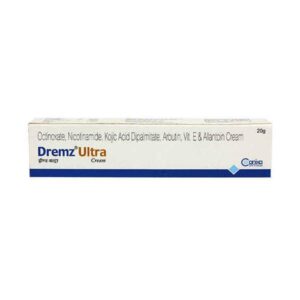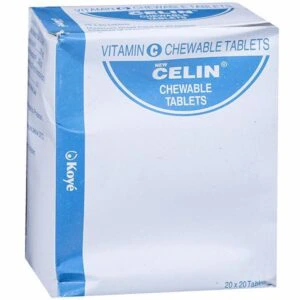VIT C + SODIUM ASCORBATE
Vit C: Drug: Vitamin C
Use: Vitamin C, also known as ascorbic acid, is a water-soluble vitamin that is essential for the formation and maintenance of connective tissue, wound healing, and the function of the immune system. It is used to prevent and treat vitamin C deficiency, as well as to support overall health and well-being.
Mechanism of Action: Vitamin C acts as an antioxidant, protecting cells from damage caused by free radicals. It is involved in collagen synthesis, which is important for the health of skin, blood vessels, bones, and teeth. Additionally, it enhances the absorption of iron from plant-based foods.
Dose: The recommended daily intake of vitamin C varies depending on age, sex, and specific health conditions. For most adults, the recommended daily intake ranges from 75-120 mg per day. However, higher doses may be recommended for individuals with certain medical conditions or during periods of increased oxidative stress. It is commonly available in tablet, capsule, or powder form.
Side Effects: Vitamin C is generally considered safe when taken in recommended doses. However, excessive intake may cause gastrointestinal discomfort such as diarrhea, nausea, and abdominal cramps. Very high doses may increase the risk of kidney stones. Individuals with a history of kidney stones or certain underlying medical conditions, such as iron overload disorders, should consult a healthcare professional before taking high-dose vitamin C supplements. Additionally, smokers should be cautious with vitamin C supplementation, as it can potentially interact with certain medications and increase the risk of adverse effects.
Sodium Ascorbate: Sodium Ascorbate is a form of Vitamin C, which is an essential nutrient for the body. It is an easily digestible and highly bioavailable form of Vitamin C. This drug is commonly used as a dietary supplement to boost the immune system, prevent and treat vitamin C deficiency, and support overall health.
The mechanism of action of Sodium Ascorbate lies in its ability to act as a potent antioxidant. It protects cells from damage caused by free radicals, which are reactive molecules that can harm the body’s cells and contribute to aging and disease. Vitamin C is also involved in collagen synthesis, which is essential for wound healing, strong blood vessels, and healthy skin.
The recommended dose of Sodium Ascorbate varies depending on the individual’s age, health condition, and purpose of use. In general, the typical adult dose ranges from 500mg to 2000mg per day. It is usually taken orally, either in tablet or powder form, and can be taken with or without food. However, it is always advisable to follow the instructions provided by a healthcare professional or the product label.
Despite being generally safe for most people when used as recommended, Sodium Ascorbate may cause some side effects. Common side effects include diarrhea, stomach cramps, nausea, and vomiting. These side effects are predominantly experienced when high doses (above the recommended upper limit of 2000mg) are taken. Individuals with certain medical conditions, such as kidney disease or a history of kidney stones, should exercise caution when taking high doses of Sodium Ascorbate. It is always recommended to consult a healthcare professional before starting any new dietary supplement to ensure it is suitable for individual needs and circumstances.
In summary, Sodium Ascorbate is a form of Vitamin C that is commonly used as a dietary supplement to support the immune system, prevent vitamin C deficiency, and promote overall health. It acts as a powerful antioxidant, protecting cells from damage caused by free radicals. The recommended dose varies depending on individual factors, and common side effects include diarrhea, stomach cramps, nausea, and vomiting, particularly when high doses are taken.


